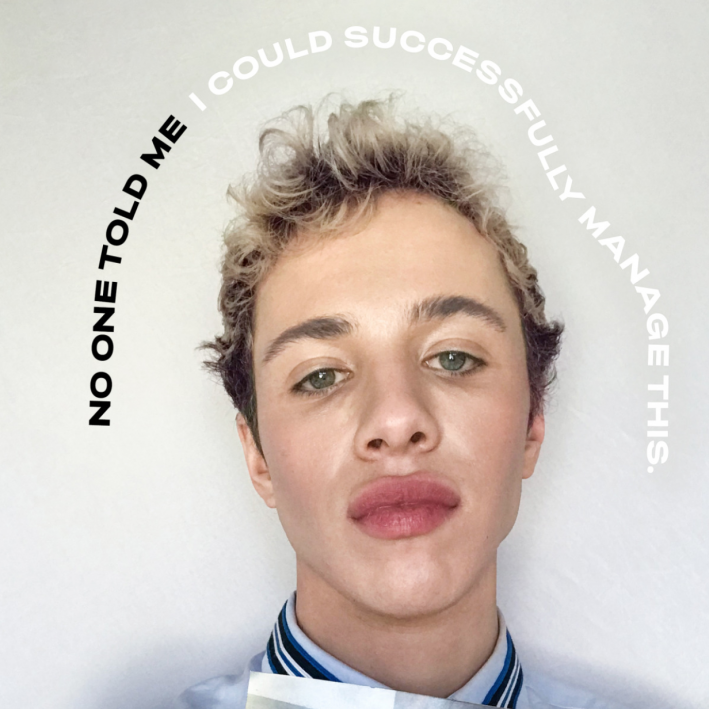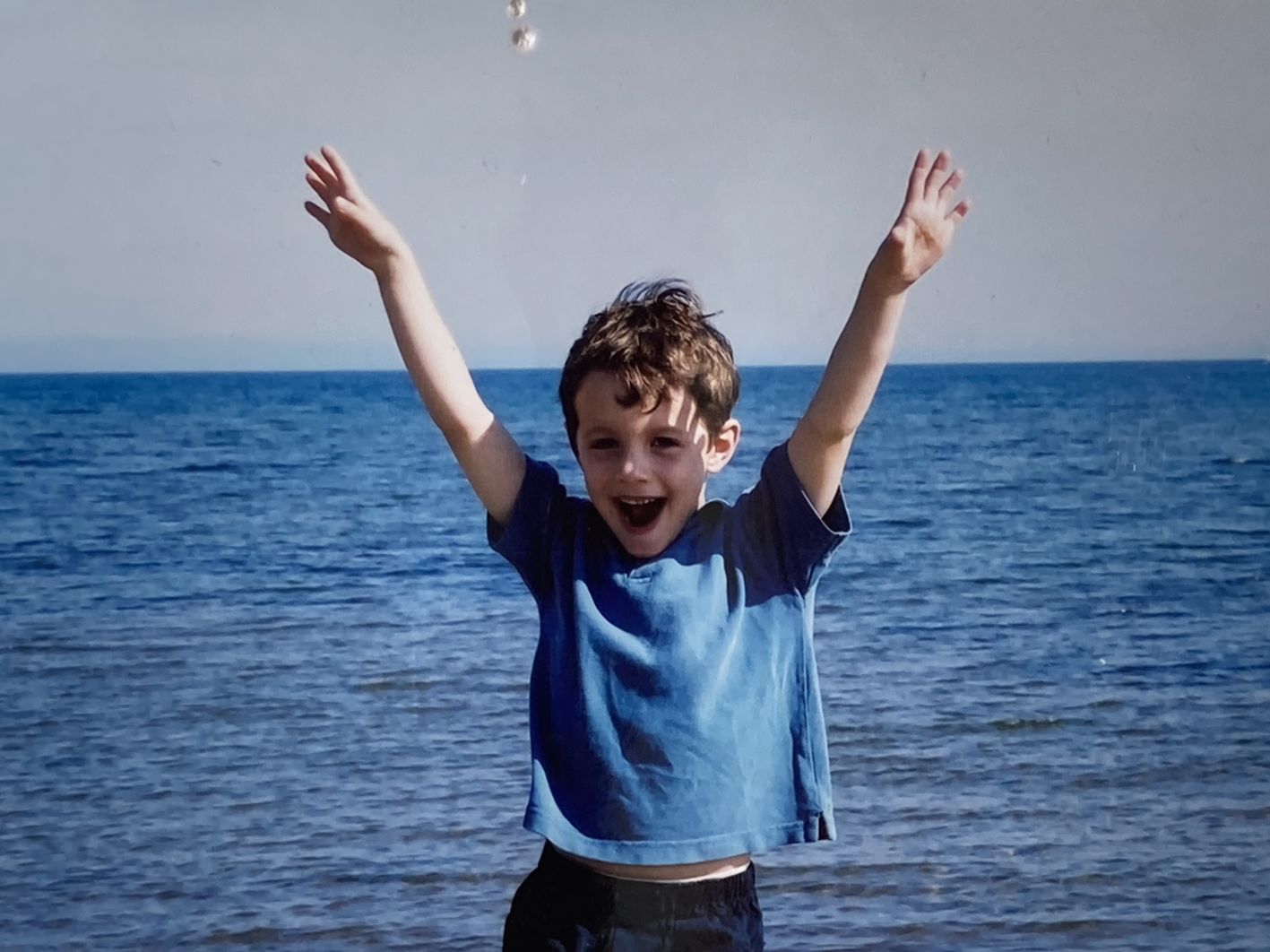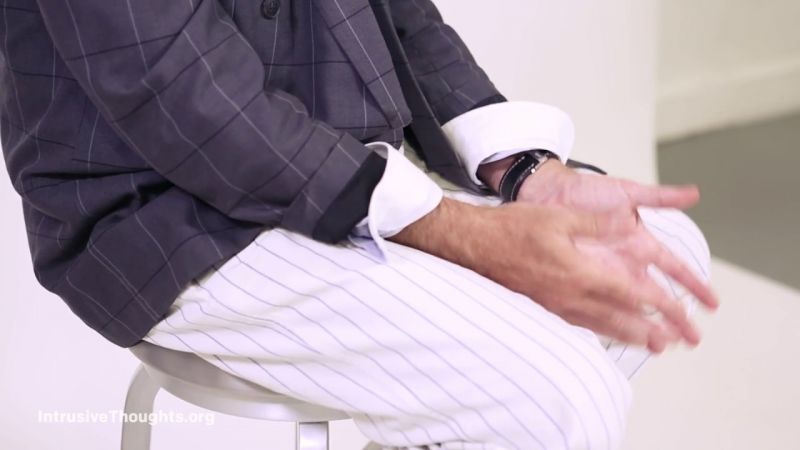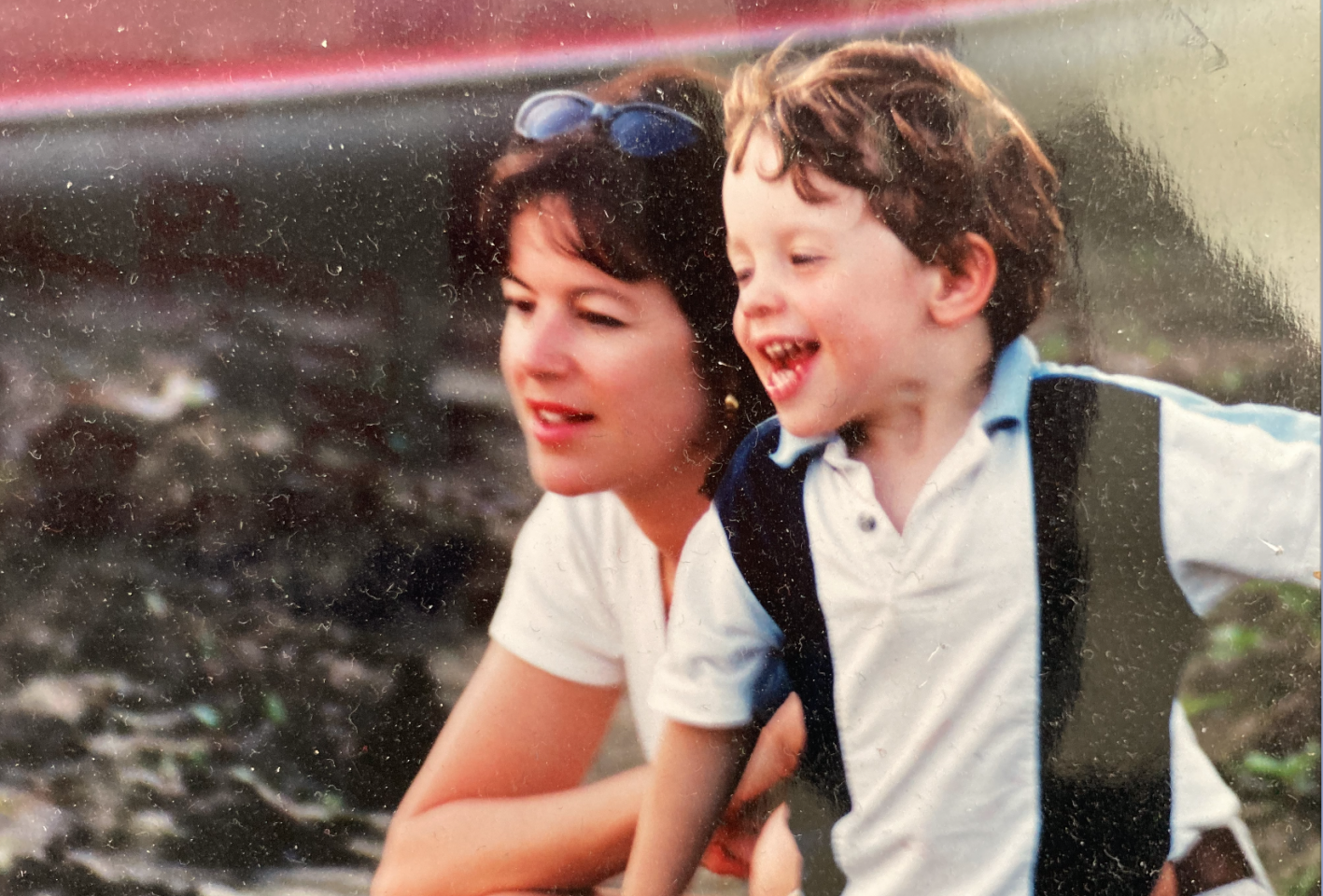No One Told Me I Could Manage This: My Story Living with Pure OCD
I hope someone may come across this and realize that they're not alone.
Written by Matthew Parisien

01 Matthew experienced violent intrusive thoughts for years, but he never understood them. He talked to multiple therapists who thought it was something he just had to talk through.
02 Eventually, his symptoms became so insufferable that he went to the emergency room. None of psychiatric professionals had an answer for him. They said it was “all in his head.”
03 Receiving an OCD diagnosis changed everything for him, and he was able to get proper help. Now he uses his story to advocate for mental health.
If you don’t know what obsessive-compulsive disorder is, you might think that it’s a personality quirk.
Maybe you’ve used it as an adjective, maybe you’ve called yourself “a little OCD,” or maybe you know it’s a legitimate disorder but aren't familiar with the subject. Even in therapeutic and professional settings, OCD is vastly misunderstood. I hope someone may come across this text and realize that they are not alone.
People are surprised when I explain that my obsessions come in the form of intrusive thoughts that I can’t get out of my mind. My compulsions involve reassurance, avoidance, rumination and checking. The Pure OCD population — those who have repeated, intrusive and uncontrollable thoughts or obsessions that usually are not accompanied by outward behavioral compulsions — actually represent a great number of OCD sufferers.
Misusing the word OCD has more severe consequences than hurt feelings. It undermines the reality of this disorder, and it’s part of the reason why people go years without a diagnosis. I don’t know if I can find the words to explain the degree of suffering in not knowing you have a condition.
Before I was diagnosed, I thought I was absolutely crazy and the only person in the world who felt this way. I consider myself extremely lucky to have found help within three years. The average timeframe it takes for someone to find help is ten.

Those three years are now mostly just a surreal blur, a past life that I wish I hadn’t had.
My instincts told me that something felt off, but I thought I was just an indecisive person, or that I wasn’t able to control my thoughts properly. I never thought it would become an actual issue until it did. In my late teens, I was constantly suffering. I could be having a perfectly normal conversation while obsessing about something and experiencing a tremendous wave of anxiety and fear, with my fight-or-flight response totally set off, and nobody would know. I became an expert at hiding my OCD. I was so tired of having my attention constantly split and was desperate for a resolution. What on earth was happening to me?
I can identify obsessive tendencies back to around the age of five. I was terrified of anything that would close shut. What if I, against my will, impulsively stuck my fingers inside of a closing car window?
I would avoid going in the car, sitting on my hands if I was forced to be in one. I also remember my brain telling me to wave at cars four times when I crossed the street. I never thought anything of this; I assumed it was just a meaningless mind game. Sometimes my obsessionality was more somatic. I always tried to control my breathing so that I could breathe in the “right way.” This meant my breathing had to be at equal intervals, and I had to breathe just deeply enough on the sixth breath.
Obsessed with Thoughts of Self-harm
When I was about 19, my whole entire world completely shifted to harm-related and existential intrusive thoughts. I remember being in my kitchen cutting vegetables, and I became so scared I was going to impulsively stab myself against my will that I actually threw the knife away. Then I emptied the trash at a park near my place, just to be totally sure I wouldn’t hurt myself.
At this point, I felt something switch in my brain. It was like something came inside of my mind and started controlling it. I used to call it “the sticky thing” when I didn’t know what it was. The more I tried to resist its input, the worse it got. There was nothing I could do to make it go away. There was no type of breathing exercise, no amount of distraction, not even any kind of suggested therapy that seemed to help. I’d had intrusive thoughts about suicide before this time, and they did bother me, but this time it was impossible to shake them. I was stuck.
It was clear to me from the beginning that despite my irrational obsession with becoming suicidal, I was not suicidal. This is the OCD paradox: knowing something is completely irrational and ridiculous to be obsessing about yet being unable to stop thinking about it.
Everyone gets intrusive thoughts, but the difference for people who struggle with OCD is that we aren’t able to recognize intrusive thoughts for what they are, just thoughts. In fact, our brains interpret them as actual threats that need to be eliminated immediately. We typically monitor our thoughts all day, trying to make sure we didn’t think about a specific thing in order to rid ourselves of whatever anxiety we are feeling. OCD sufferers are constantly protecting themselves from questions that are simply unanswerable. OCD is an intolerance for uncertainty.
When I was dealing with harm-related intrusive thoughts, some of which I still struggle with, my first instinct was to do anything I could do to survive. So I spent 24 hours a day ruminating on a question I would never be able to answer: "What if I kill myself? And what if I snap at any moment and completely lose it?”
I avoided the subway, hid all of the knives in my home, and isolated all of the pills I owned to make sure I wouldn’t swallow them in my sleep. When I started taking medication for anxiety, I was so afraid I would take the meds all at once that I actually would stop taking them for sporadic periods of time, which compromised their efficacy. I would avoid dark, gloomy spaces, thinking that they would spark some kind of depressed feeling in me.
Becoming suicidal, even depressed, was something that had to be avoided or figured out immediately. I felt an overwhelming sense of urgency to put my anxiety to rest. As you can imagine, managing my depression was hard to do considering I had an overwhelming fear of suicide. How was I supposed to balance this out? How could I avoid the inevitable depression I needed to let myself feel? How could I convince myself that I was a happy human being, while simultaneously feeling unavoidably depressed?
I needed to feel happy because I could not be suicidal, yet I could not let go of the noise inside of my head. I ignored this contradiction as much as possible, but the tension between feeling depressed and needing to be happy was too strong for me to face. As much as I tried to find a resolution to this contradiction, there was no answer.
In hindsight, I would have probably handled this differently had I known I had OCD. When you’re constantly trying to protect yourself, and when your brain thinks in black and white, contradictions don’t exist, intersections don’t appear, and any kind of grey area requires that you find definitive answers.
After three years of this, I couldn’t take it anymore. I was so confused. Why was I obsessing about such an irrational thing? Why was I absolutely not able to stop thinking about something despite trying so hard not to? Why was this causing me so much anxiety? More importantly, how the hell was I supposed to talk to someone about this?

What is Suicidal OCD?
Dr. Phillipson defines and discusses Suicidal OCD.
Desperate for Help
I felt stuck in my head and disconnected from myself and my surroundings. There was nothing I wanted to do anymore. My compulsions normally saved me from the anxiety I was feeling, but those had stopped being effective. I didn’t want to see my friends, didn’t care about school — life just seemed like the darkest thing there was. I finally decided to seek help, and I saw countless therapists who told me to “talk it out,” which only seemed to make my situation worse.
I was losing hope. It felt like there was no one out there, and I was desperate to find help. I didn’t quite know what to do, I couldn’t control “feeling happy” anymore, and my depression essentially swallowed me up, which resulted in more anxiety. I checked myself into the hospital because it seemed like there was no other option. I told the emergency room that I was “scared of killing myself.” I spent a day in the psychiatric ward hoping I would find answers, but no one had any idea what I was talking about. It was endless questioning, with them trying to get information out of me that I just didn’t have. Lacking knowledge of Pure OCD, they believed I was suicidal and was keeping it in. I was told that it was “all in my head,” and they recommended that I move forward with a different therapist and switch my medication.
I left the hospital feeling worse than I did going in. A day after I got out of the hospital, I didn’t see light at the end of the tunnel. I was now convinced that my life was over, thinking that I’d just have to live this way for the rest of my life, and that I better just toughen up. At the time, it was almost impossible to accept that I would have to endure this much pain for what seemed to be an eternity. By then I was 21 years old. I don’t think I ever fully came to terms with that part of my story.
The Turning Point
Not long after my departure from the hospital, I stumbled upon Chrissie Hodges’s YouTube video on suicidal OCD. Chrissie is a peer support specialist based in Colorado who does amazing advocacy work. She runs a nonprofit organization called OCD Gamechangers geared towards fostering a sense of community, inspiring hope, and changing the way the world perceives OCD.
Her video described what I was going through in detail. It still feels like a pretty surreal moment. I’ll never forget it. I don’t think I’ve felt so much relief in my life, Her video gave me enough to move through. Knowing I had Pure OCD and that my story didn’t have to end miserably changed everything for me. An enormous weight was lifted off my shoulders. My brain may be wired differently, but my condition was treatable.
I couldn’t believe that I wasn’t a complete monster. OCD themes tend to gravitate towards the taboo, which makes it incredibly difficult for sufferers to open up about their obsessions. But whether you’re obsessed with thoughts of harming yourself, cheating on your partner, becoming a serial killer, contracting AIDS, being a horrible person, becoming sinful, or even being obsessed about obsession itself, the themes technically don’t matter. OCD is a condition that can infiltrate any aspect of your life. The possibilities are endless.
If you’re reading this and you have an obsession about something you think is embarrassing, know that you are not alone and your feelings are valid. Shame and guilt are completely normal feelings to experience when having a mental illness, and you should never fault yourself for experiencing them. Second of all, it isn’t your fault that you’re having these thoughts, and it definitely isn’t a choice you are making. You don’t have a say in what you obsess about, so you shouldn’t hold the belief that it means anything about who you are.

There is Hope
I have learned that there are questions in life that are unanswerable, and that living in the middle is better than chasing the extremes. I am trying to heal, to re-learn, to make peace, to love myself a little more each day, and to forgive myself for all that I let go of when I was deep in OCD symptoms. But none of this is possible without a diagnosis. When you have a mental illness and you don’t have a foundation of knowledge, there is no way to move forward. Had someone spoken to me even just once about intrusive thoughts, I would have looked up an OCD therapist right away. This is why mental health awareness is so important. People shouldn’t have to go looking three years to find help, not to mention ten. Dealing with a mental illness is one thing, but not knowing you have one is another. You shouldn’t have to go through that extra layer of trauma thinking you’re a complete exception.
I am incredibly lucky to be here today. I’m hoping someone will find this article and realize that they are not alone. There is hope, there is help, and it is possible to manage this disorder successfully. There are therapists who specialize in OCD and use CBT, specifically exposure and response prevention, which is the gold standard for OCD treatment.
If there’s one thing I took away from my experience, aside from a new outlook on life and the human race, it’s that whatever you are going through, OCD aside, you are never alone. There is nothing you feel that is unique to you, no matter how severe it may seem. The internet is an incredible resource for us right now —let’s make proper use of it. With mental illness, there is no room for a lack of education.
You can keep up with Matt on Instagram @wordshug or on his site at wordshug.com.
Support our work
We’re on a mission to change how the world perceives mental health.



















